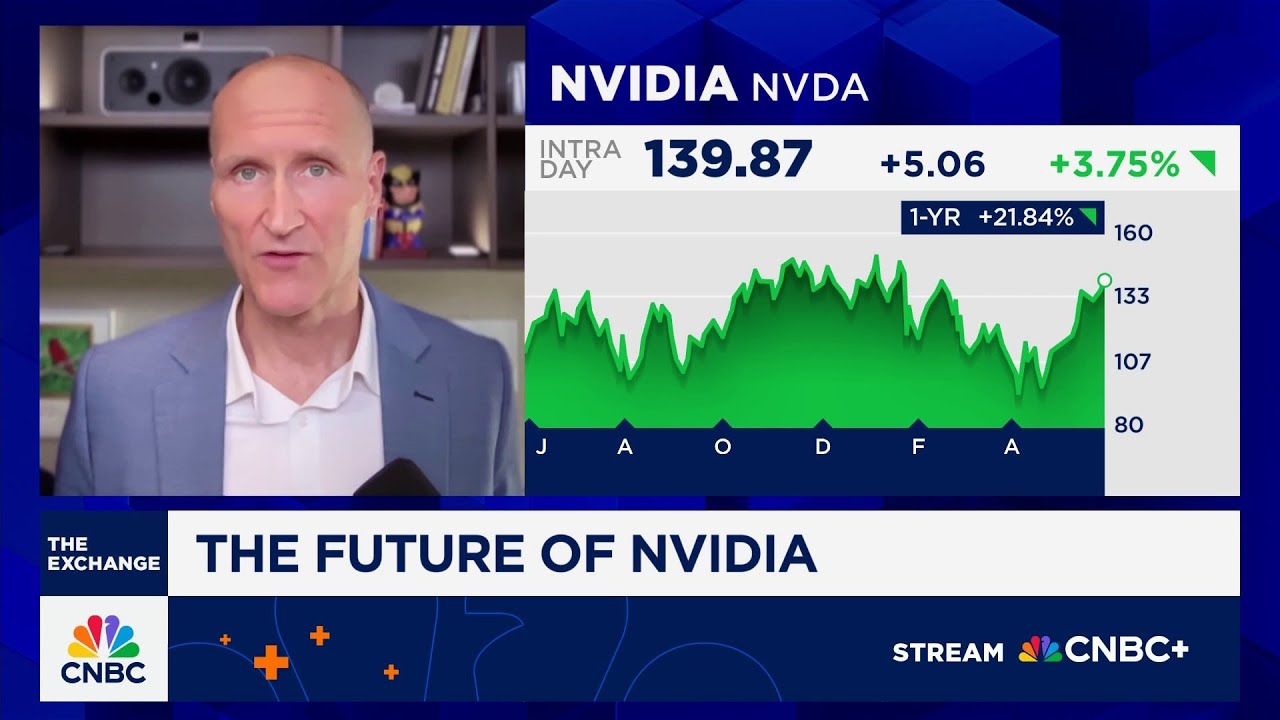Gene Munster from Deepwater Asset Management believes Nvidia’s strong AI-driven growth could be significantly boosted once geopolitical and export restrictions, especially concerning China, are eased through negotiations. He remains optimistic about Nvidia’s long-term prospects, citing the early stage of AI adoption and the company’s strategic efforts to align with U.S. policies, which could lead to substantial upside despite current temporary setbacks.
In the video, Gene Munster from Deepwater Asset Management discusses Nvidia’s strong core business and its potential for continued growth despite ongoing geopolitical and export restrictions, particularly concerning China. He highlights that Nvidia’s recent revenue was impacted by these restrictions, which caused a roughly 15% decline, but he believes that these issues are temporary and could be resolved through negotiations, potentially leading to a significant upside once restrictions are eased. Munster emphasizes that the broader AI buildout remains robust and is a major driver of Nvidia’s future prospects.
Munster explains that Nvidia’s leadership, especially CEO Jensen Huang, is actively engaging with U.S. government officials to advocate for policies that favor American tech companies. He notes that Nvidia is working to bring more manufacturing back to the U.S., collaborating with partners like TSMC, aligning with the White House’s goal of developing critical technology domestically. Huang’s messaging also includes trust in the current administration’s vision and plans, suggesting Nvidia is positioning itself to benefit from potential policy shifts that could ease export restrictions.
The discussion touches on the strategic importance of balancing national security concerns with economic growth. Munster suggests that the U.S. government is likely to prioritize economic considerations, which could lead to a relaxation of trade curbs on Chinese tech firms in negotiations for broader trade agreements. He believes that these restrictions might be used as leverage in negotiations, and that a resolution could be reached by the end of the year, allowing Nvidia and other companies to regain some of the lost revenue and growth opportunities.
Munster also points out that Nvidia’s stock and revenue estimates have already been adjusted downward due to these restrictions, with the market factoring in a slowdown. However, he sees significant potential for upside if the restrictions are lifted, especially given the strong demand for AI technology globally. He notes that Nvidia’s guidance has shown an acceleration in growth, with estimates being raised by about 8% for the upcoming quarter, which is a substantial increase compared to previous guidance revisions.
Finally, Munster emphasizes that the AI industry is still in its early stages, with hyperscalers and industries only about a third of the way through their adoption. He believes that regardless of geopolitical issues, the AI buildout will continue to accelerate, making Nvidia well-positioned for long-term growth. He remains optimistic that the current challenges are temporary and that the AI revolution will drive Nvidia’s growth for years to come.
